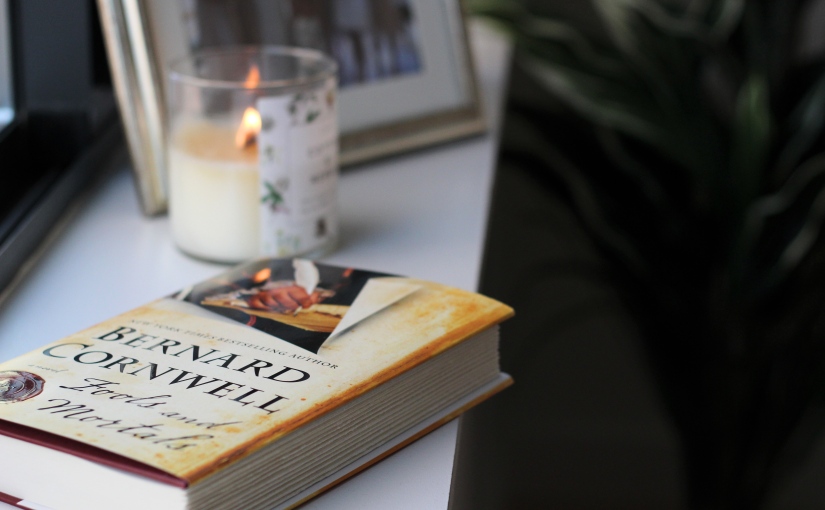
Hardcover: 384 pages
Publisher: Harper
Release Date: 9th January 2018
3 STARS
SET IN LONDON (1597)
The King of the historical fiction genre has returned with a stand-alone novel re-telling the first staging of Shakespeare’s “A Midsummer Night’s Dream” and I practically ran to the bookstore to buy it. How could I resist? I’m a massive Cornwell fan, he’s one of the few authors where I will actively go out and buy the hardback rather than wait for the paperback and this looked like it ticked all my boxes – Cornwell’s usual eye for detail with setting and description, theatre and adventure all rolled up together.
The Blurb: In the heart of Elizabethan England, Richard Shakespeare dreams of a glittering career in one of the London playhouses, a world dominated by his older brother, William. But he is a penniless actor, making ends meet through a combination of a beautiful face, petty theft and a silver tongue. As William’s star rises, Richard’s onetime gratitude is souring and he is sorely tempted to abandon family loyalty.
So when a priceless manuscript goes missing, suspicion falls upon Richard, forcing him onto a perilous path through a bawdy and frequently brutal London. Entangled in a high-stakes game of duplicity and betrayal which threatens not only his career and potential fortune, but also the lives of his fellow players, Richard has to call on all he has now learned from the brightest stages and the darkest alleyways of the city. To avoid the gallows, he must play the part of a lifetime . . . .
It hurts me to say this but… I didn’t love this book. I liked it. It was an enjoyable read but no fires were lit and I’m not sure I will remember anything about the characters in three months time.
Lord, what fools these mortals be…
This is Cornwell’s first foray into Elizabethan England and rather than his usual confident ease with the periods he explores, he’s succumbed to the author’s trap of trying to explain and describe every detail for a modern audience. It surprised me that he did this as it’s not a feature of this other novels – he never explains what Saxon terms are in The Saxon Chronicles and it feels a little heavy handed here, like he doesn’t trust us to be able to work out from context what things are.
His use of language and dialogue remains excellent though. Cornwell really goes to town with the rich bawdy insults that Shakespeare was famous for. In fact, these hilarious turns of phrase are probably the most entertaining part of the book. The characters never feel stilted in their dialogue and it flows well with plenty of witty to and fro. The problem is that you never really get past this to characters that you really care about.
Richard Shakespeare is William’s younger more annoying brother. This wouldn’t be an issue except that he narrates the entire story. It’s an interesting angle to present Shakespeare (the older) as a violent, difficult man but much of it is tainted by the petulant, bitter observations of the younger Shakespeare, although this does definitely improve as the narrative unfolds – the main action of the book takes off half way through and everything is on the up from there on out.
Overall, this is a good romp through a new era for Cornwell but doesn’t really hold a torch to his longer series. You won’t come away loving the characters or feeling particularly invested, which is a shame.
If you want classic Cornwell you’re better off sticking with The Saxon Chronicles or the Sharpe series.
